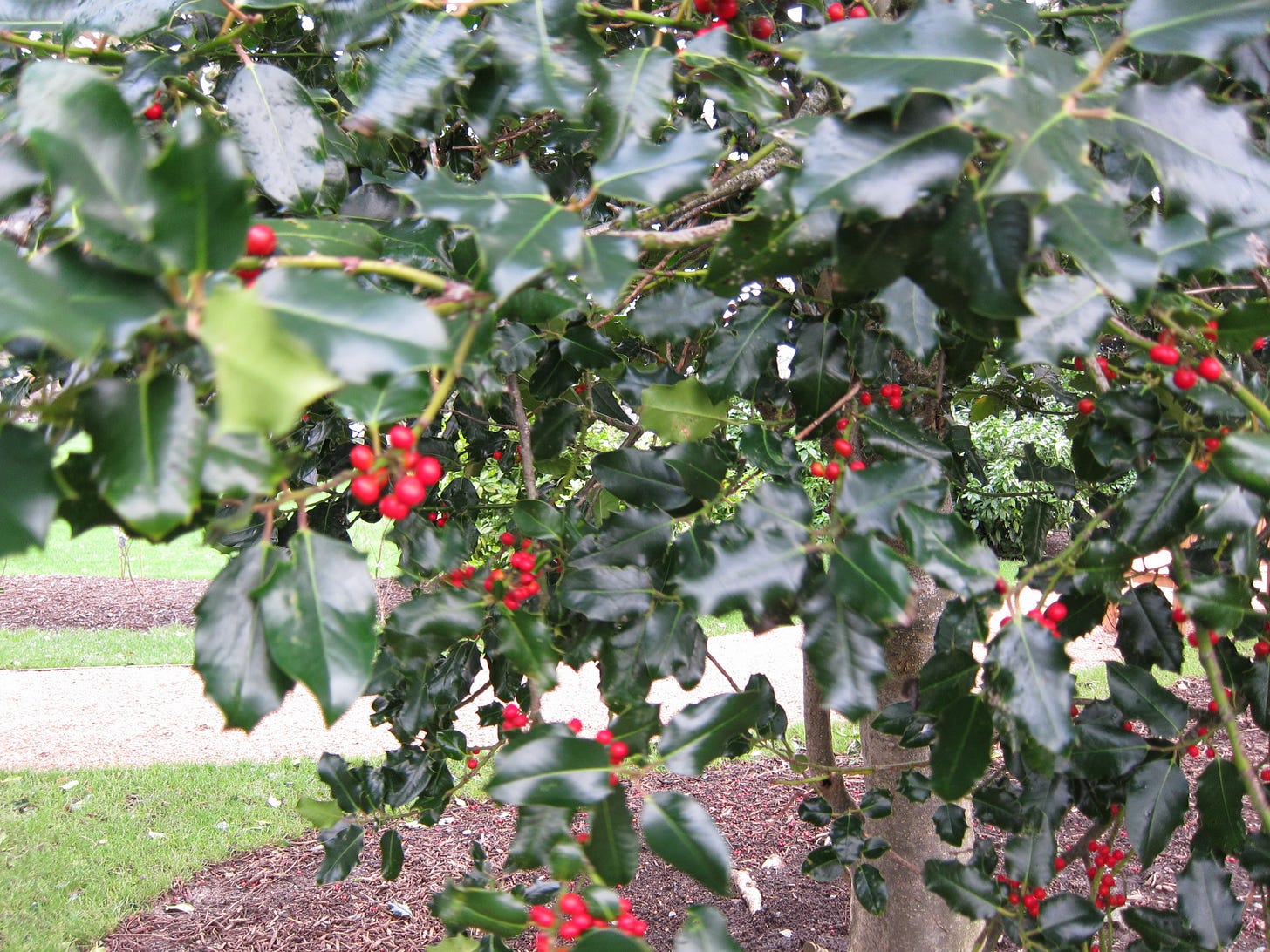Footnotes to a Conversation, December 2, 2024
“There is nothing in the world so irresistibly contagious as laughter and good humor.” – Charles Dickens
Watch Your Words
The words we use both reflect and influence our attitudes and beliefs about more-than-human nature. We talk about fisheries not fish and forestry in place of trees. We refer to the environment and the natural world, as if humans were not part of it. Expressions such as busy beavers, eagle-eyed, or lion-hearted show respect for wild creatures, but we are very cruel when it comes to pigs, weasels, and slugs. Perhaps we can find substitutes for violent idioms: “‘To kill two birds with one stone’ could change to: To feed two birds with one nut. ‘There’s more than one way to skin a cat’ could become: There’s more than one way to peel a carrot. And ‘flogging a dead horse’ could transform into: watering a plant in the rain. [Global Rewilding]
The Art of Writing a Cookbook
Michèle Roberts, author of French Cooking for One, describes writing a recipe as very similar to writing a poem, “which is about choosing words and ingredients and things. The right thing in the right place and so on, the time, the narrative. Or perhaps a recipe is like composing a magic spell to give yourself pleasure or consolation or ideas.” [Vittles]
Family Heritage
A Palestinian family based in the United States started out selling their olive oil on WhatsApp. The packaging for their newly launched product is playful and fun with colourful illustrations of birds, Palestinian symbols, and comic art on the inside sleeve. “We didn’t want to take ourselves too seriously when making the packaging. Olive oil production, especially in Palestine, has never been a purely serious or somber activity … It’s about families coming together — kids playing, aunts and uncles gathering to pick olives.”
“Unlike modern olive harvesting practices that often use pesticides, chemical fertilizers, or pest prevention methods like wrapping trees in plastic, Palestinian farmers rely on multi-generational techniques and agricultural wisdom. Farmers plant fig trees within olive groves to naturally attract pests away from the olive trees, and fertilize the soil only with compost and rely solely on rainfall for irrigation — this preserves soil purity and yields high-quality oil.” [Mozilla]
Little Plant Library
In Sidney, Australia, people swap plants, not books. [The Guardian]
Footnotes to a Conversation is a weekly Monday feature covering an assortment of topics that I’ve come across in the preceding week – books, art, travel, food, and whatever else strikes my fancy. I also post occasional articles on other dates, including frequent book reviews and travel tales.
If you share my love of nature, check out EcoFriendly West, an online publication encouraging environmental initiatives in Western Canada, and Nature Companion, a free nature app for Canada’s four western provinces.




